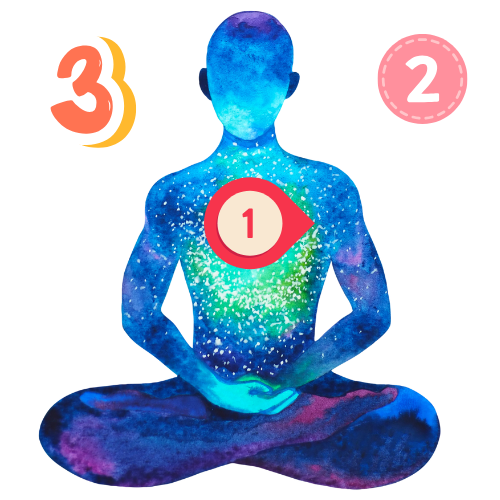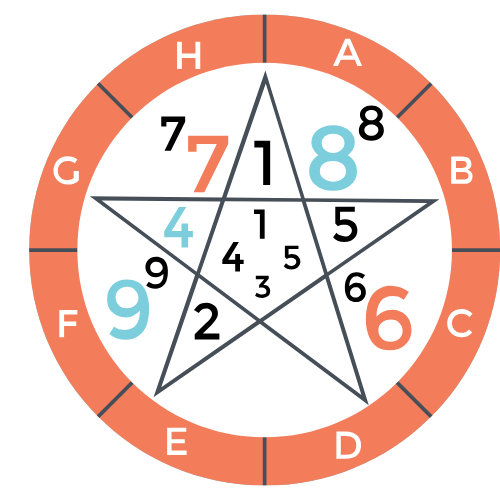About Sleep Time Calculator
What’s the best time to sleep?
Sleep is vital, not only for maintaining your overall health but also for the optimal functioning of your brain. It’s during sleep that your body supports your nervous system, giving it a chance to recharge. So, it’s natural to wonder what the ideal time is to go to bed and wake up. Much like your phone needs a charger when it’s out of battery, your body requires continuous, uninterrupted hours of rest to function at its best. Yet, work stress, academic pressure, and poor eating habits often disrupt our sleep, leaving our bodies struggling to perform. To figure out the best time to sleep and wake, it’s essential to first understand your sleep cycle.
In an ideal world, we’d all go to bed early and wake up with the sunrise. This rhythm aligns with our natural biological inclination to sync our sleep with daylight. You might notice that after sunset, you naturally feel more tired. But the exact time you wake up depends on your specific needs, especially how much sleep your body requires.
Experts recommend adults aim for 7 to 9 hours of sleep per night, although this can vary. While one person might need nine hours, you might feel perfectly fine with just seven and a half. The key is whether you fall within that range and wake up feeling refreshed. Ideally, throughout the night, your body should complete five to six sleep cycles, each consisting of four stages—three non-rapid eye movement (NREM) stages and one rapid eye movement (REM) stage. It’s during REM sleep that your brain does most of its recovery. Missing out on REM sleep can lead to memory issues, low mood, and trouble concentrating.
What’s the best time to wake up?
To get your sleep back on track, the first step is ensuring you’re going to bed and waking up at the right times. While the amount of sleep you need changes throughout your life, adults between 18 and 64 should aim for that golden window of 7 to 9 hours each night.
An easy way to figure out your bedtime is to calculate it backwards. Say you plan to wake up at 7 am. You should start winding down for sleep no later than midnight to give yourself a solid nine hours.
Paying attention to how your body feels can also guide you to the right wake-up time. In warmer months, for example, many people struggle to sleep due to the heat, leading to earlier exhaustion in the evenings. A good rule of thumb is to wake up seven to nine hours after falling asleep. So, if you go to bed at 11 pm, aim to rise between 6 and 8 am. This ensures you get enough restorative sleep to tackle the day. To improve your sleep, try to keep your wake-up time consistent, even on weekends.
How to improve your sleep routine?
A few simple rules can help you achieve better sleep. The most important one? Stick to a regular wake-up time every day. By doing this, you create a routine that trains your body to rest and recharge effectively. Also, try getting up before the sun rises—you’ll have time to relax and enjoy the morning. Finally, avoid sleeping in on weekends or holidays, as this can throw off your routine and make it harder to wake up on time the next day. Some people believe the best time to wake up is when you feel well-rested and energised. Others prefer an early rise to get a head start on the day. Ultimately, it’s about what suits you best. Be mindful of how you feel when you wake up—if getting out of bed feels like a struggle, it might be time to adjust your schedule.
What is the sleep cycle?
Our bodies follow an internal sleep cycle, which is influenced by brain activity, genetics, and external factors like light and lifestyle habits. This cycle alternates between two phases—non-rapid eye movement (NREM) sleep and rapid eye movement (REM) sleep—throughout the night. Typically, the body moves between these states every 90 minutes. As the night progresses, the REM stages get longer, while the NREM stages become lighter. Ideally, you should experience four to five cycles each night. Waking up at the end of one of these cycles, when sleep is at its lightest, can help you feel more refreshed.
What happens if you don’t get enough—or too much—sleep?
If you feel groggy during the day, it’s likely you didn’t get enough sleep the night before. A lack of sleep can also lead to accidents, irritability, and forgetfulness. Over time, chronic sleep deprivation can have serious effects on your health, increasing the risk of conditions like high blood pressure, diabetes, heart disease, obesity, and depression.
Interestingly, too much sleep can also have negative consequences, though it’s often overlooked. If you regularly sleep for more than 8 hours and still feel tired, you may be getting too much rest.
The best approach is to aim for an earlier bedtime and a consistent wake-up time each day. While this schedule may not work for everyone, the most important thing is ensuring you get enough quality sleep. By sticking to a regular routine, you can give your body the rest it needs to function at its best.







